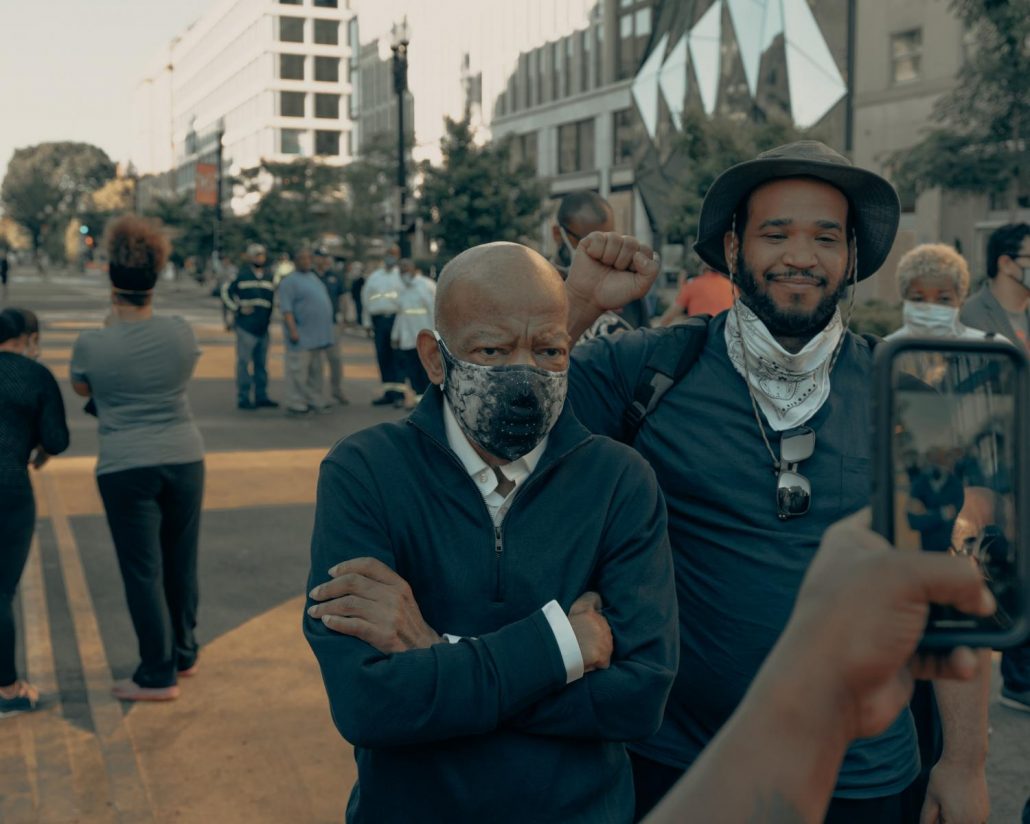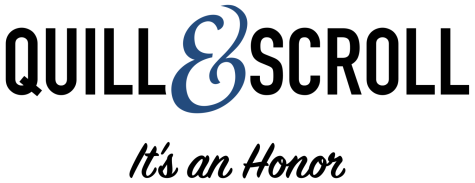For student journalists, there’s no trouble like John Lewis’ ‘Good Trouble’
By Patrick Johnson
Q&S Board Member

John Lewis at a recent demonstration in Washington, D.C. Photo by Clay Banks on Unsplash
Student journalists can learn a lot from the life and career of civil rights legend and U.S. Representative John Lewis (D-Georgia). Amid all of his adages and advocacy, speeches and laws, fights and friendships is his legacy of preaching and living out “good trouble.” And those two words—emboldened and emblazoned by the Quill and Scroll principles of integrity, initiative, leadership and truth—should continue to ring as Quill and Scroll or scholastic journalists begin a new adventure this coming school year.
In March of this year, on what is arguably one of the most well known places involved during the Civil Rights Movement—the Edmund Pettus Bridge in Selma, Alabama—Lewis claimed that in order to save our nation we must get into “necessary trouble,” or trouble he deemed as “good trouble.” This kind of trouble is our opportunity to champion truth, have faith in the future, breathe hope into the present, and love the ghosts of our past. Lewis may not have realized his message would provide guidance for a younger audience that sadly might not have been watching on that fateful March day meant to commemorate Bloody Sunday—an event where Lewis was bludgeoned, bloodied and beaten for protesting racial inequalities. While speaking to the Selma audience, Lewis reflected on the event that would eventually lead to the 1965 Voting Rights Act, he unknowingly told our young journalists exactly what they needed to hear as they embark on uncharted waters.
While many wish cancel culture would claim “in these unprecedented times” as its latest victim, there isn’t often a more appropriate phrase to describe the darkness we in the American education system are about to enter without a flashlight or spotlight or North Star to guide us. We are returning to our schools with uncertainty, distance (and not the six feet of it demanded), fear, and a whole lot of technology. And with those come a renewed need for journalism to live long and prosper in our school systems.
Journalism, the Fourth Estate, was meant to cause good trouble, and it was meant to keep our governmental agencies in check. For those in fear of what will come—such as how to conduct quality interviews through a screen or manage a camera checkout system, when to distribute print publications again without worrying about spreading a virus, ways to download the needed software with a phone or Chromebook, or how to tell the story of the year without being within the walls of our beloved schools, I urge you to rely on Representative Lewis’s advice: “get in good trouble.”
Just because the means of which you work or the place in which you cover will change in the physical sense, your role as an ethical journalist does not. It’s times like these when power goes unchecked, representation unserved, and kindness underutilized. Only you as a journalist can rise above that as you are still called to serve this noble profession.
- Cover the protest.
- Share why lives matter.
- Evaluate the money trail.
- Question qualification and leadership.
- Attend school board meetings virtually.
- Engage with local food pantries and shelters.
- Protect First Amendment freedoms.
- Seek truth and report it.
- Minimize harm.
- Lead with prosperity.
- Tell stories with integrity.
- Guide younger journalists to do the same.
As you begin this school year, don’t let the challenges of the time impede your ability to do journalism. Let the time be an opportunity for you to tell the first draft of history in a way that will forever be remembered.
Be journalists: the truth seekers, the muckrakers, the barnburners, the peaceful advocates, the storytellers, and the voice for the voiceless.
And, even when the world gets scary and we continue to live within the unknown, the most important thing to do, is to be you—unconditionally, unabashedly, and unapologetically. Because without you, journalism in your communities may cease to exist.
Take a page out of Lewis’s playbook: challenge the system by being good troublemakers, and be the difference you wish to see in the world.
Journalism is more important now than ever.


Leave a Reply
Want to join the discussion?Feel free to contribute!